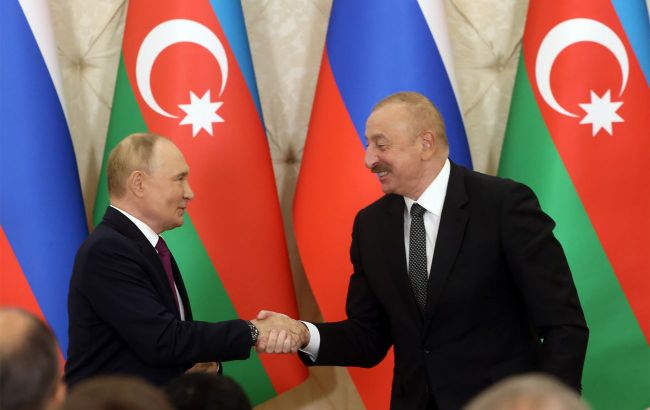Russia and Azerbaijan clash: How far escalation could go?
 Photo: Vladimir Putin and Ilham Aliyev (Getty Images)
Photo: Vladimir Putin and Ilham Aliyev (Getty Images)
Russia is currently too weak for military intervention in the South Caucasus or to exert pressure on individual countries. The Kremlin may come to realize that negotiations are more effective than confrontation.
Wojciech Wojtasiewicz, an analyst on South Caucasus issues at the Polish Institute of International Affairs, told RBC-Ukraine that Azerbaijan's leadership is not interested in submitting to Russia but rather in pursuing a multi-vector foreign policy. This, he said, highlights the country's independence and assertiveness.
Azerbaijan can afford this position after its victory in Karabakh, and thanks to its strong military and support from Türkiye and Israel. As a result, coercive pressure on Baku is largely ineffective.
According to the analyst, Moscow is too weak to apply military pressure and may eventually resort to diplomacy.
"Due to the war in Ukraine, Russia is now too weak to conduct military interventions in the South Caucasus to pressure individual countries. Sooner or later, the Kremlin will realize that backdoor negotiations with Ilham Aliyev (President of Azerbaijan - Ed.) will yield better results than open confrontation," Wojtasiewicz said.
Tensions between Russia and Azerbaijan
A new conflict recently flared up between Russia and Azerbaijan, sparked by mass detentions of members of the Azerbaijani diaspora in Yekaterinburg, the deaths of two individuals, and police raids targeting the community.
In response, Azerbaijan arrested FSB (Federal Security Service) agents and cracked down on pro-Russian media. The country also canceled all Russian cultural events.
It’s worth noting that this followed a tragic incident involving an Azerbaijan Airlines plane that was reportedly shot down by Russian air defense.

